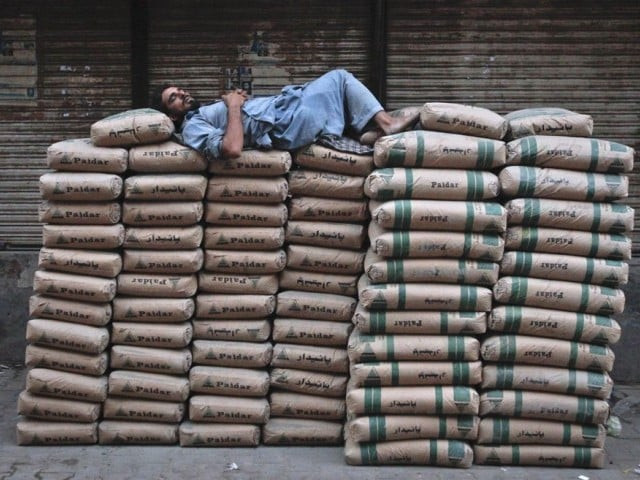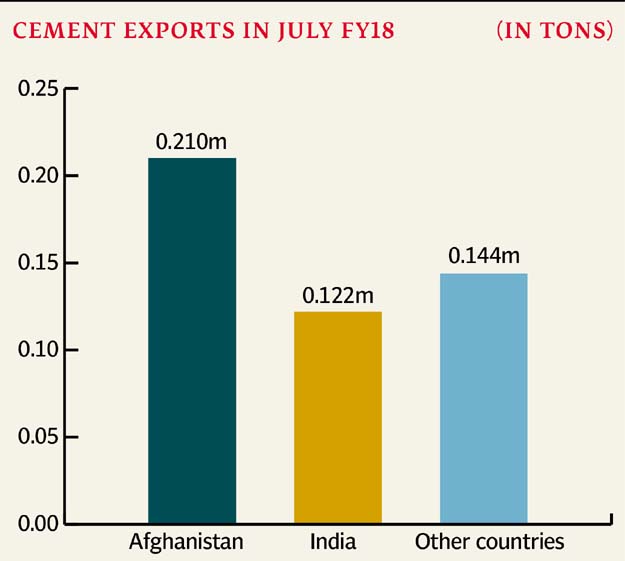Domestic cement sales surge 55% in July FY18
Positive figures revive hopes after poor performance in previous month

PHOTO: REUTERS
Domestic consumption surged a whopping 55% while exports edged up 2.28%.
The turnaround after a dismal performance in June 2017 took the industry by surprise and the sharp increase in sales in July revived hopes for the sector. This came despite political turmoil and unprecedented rains throughout the country, which depicted the maturity of the country's construction sector.
The industry's capacity utilisation stood high at 86.46%. The annual cement production capacity of the overall industry has increased to 46.94 million tons.

Local dispatches from units based in the northern region were estimated at 2.423 million tons while their export shipments totalled 0.338 million tons in July 2017 as opposed to 1.516 million tons in local sales and 0.306 million tons in exports in the same month of previous year.
South-based mills also recorded a growth in local sales, which increased from 0.352 million tons to 0.483 million tons in July whereas exports took a hit and dropped to 0.138 million tons from 0.159 million tons in July 2016.
Exports to Afghanistan increased 40.25% from 0.150 million tons to 0.210 million tons in July 2017. However, this major increase was offset by declines of 11.61% and 18.95% respectively in exports to India and other countries by sea, which stood at 0.122 and 0.144 million tons respectively.
A spokesperson for the All Pakistan Cement Manufacturers' Association said sales figures for July were the most encouraging. With sales of 3.382 million tons, he said, the industry had established a record for the month.
According to him, the cement industry has never crossed the dispatch limit of 3 million tons.
However, he emphasised that this did not mean that economic planners should ignore the genuine difficulties faced by the sector.
The industry was performing in a stiff regulatory environment and was only surviving because it had upgraded its technology that provided the strength to take any challenge head-on, he said.
"Our quality is the best in the region and our efficiency is second to none. No cement could compete with Pakistani cement if imported at real and fair value after paying all government levies. However, weak border controls and lax customs vigilance allow the entry of cement from across borders at unfair valuations, hurting the local cement industry."
The spokesman was of the view that the government should reduce the excise duty on the sector in order to give a further boost to its dispatches. In the same way, the import duty on coal imported by the sector should be brought on a par with other sectors.
Published in The Express Tribune, August 5th, 2017.
Like Business on Facebook, follow @TribuneBiz on Twitter to stay informed and join in the conversation.



















COMMENTS
Comments are moderated and generally will be posted if they are on-topic and not abusive.
For more information, please see our Comments FAQ